SheLeads
Empowering Elected Women Representatives in Local Governance (Nepal)

Industry
Civic Engagement | Education
Role
Product Designer
Team
Collaborated with IFES and CDWN teams, senior designers, and program officers
Duration
2 years
Approach
User-centered design
Tools
Figma, Canva, Adobe Illustrator
Overview
She Leads Nepal was created to empower over 14,000 newly elected women leaders many from marginalized communities such as Dalits who faced significant barriers in leadership due to societal norms and the COVID-19 pandemic. The project focused on developing clear, culturally sensitive, and accessible learning materials, including illustrated guides and interactive worksheets, to support their leadership skills, governance understanding, and confidence-building. Adapting these resources for remote and hybrid delivery ensured continued engagement and effectiveness despite pandemic disruptions.
Problem Space
Newly elected women leaders many from marginalized communities like Dalits lacked access to leadership training, faced language and literacy barriers, and were held back by societal norms.
COVID-19 made things worse by cutting off in-person training. Complex topics like governance and gender inclusion became even harder to deliver.
A solution was needed that simplified dense content, worked across digital and offline settings, and empowered women to lead with clarity and confidence.
Problem Statement
How might we empower newly elected women leaders to learn and lead confidently despite social barriers and limited access?
My Contribution
I led the design of the user journey for Elected Women Representatives (EWRs), ensuring every design touchpoint from training modules to visual aids was simple, accessible, and empowering.
Key Contributions:
- Developed clear, user-friendly training materials and illustrated guides, applying principles of information hierarchy and visual clarity.
- Designed interactive worksheets that prioritized user engagement, promoting leadership, public speaking, and resilience-building.
- Simplified complex political structures into intuitive, visual information flows to support learning for first-time leaders.
- Adapted the training experience for remote delivery during COVID-19, ensuring content accessibility across in-person and virtual sessions.
- Collaborated cross-functionally with trainers, program officers, and senior designers to conduct feedback loops and iterate on design materials.
- Applied accessibility and cultural sensitivity standards to all designs, ensuring relevance across diverse user groups.
Research & Analysis
To ground our design decisions in user needs, we conducted:
- User Interviews:
- Contextual Observation:
- Data Synthesis:
Engaged directly with elected women to understand their challenges with governance, public speaking, and digital tools
Attended live training sessions to observe how users interacted with materials and identified moments of confusion or disengagement.
Mapped insights to uncover major gaps in confidence, digital fluency, and content accessibility.


User Personas & Journey Mapping
Organizing Insights to Understand User Needs
For She Leads Nepal, we developed user personas based on insights from interviews and research, helping us understand the goals, challenges, and motivations of women aspiring to leadership roles. This informed the design of a tailored experience for their needs. Additionally, we created a user journey map to visualize the entire experience, from discovering the platform to post-program success, ensuring we addressed key touchpoints and improved the user experience throughout the process.
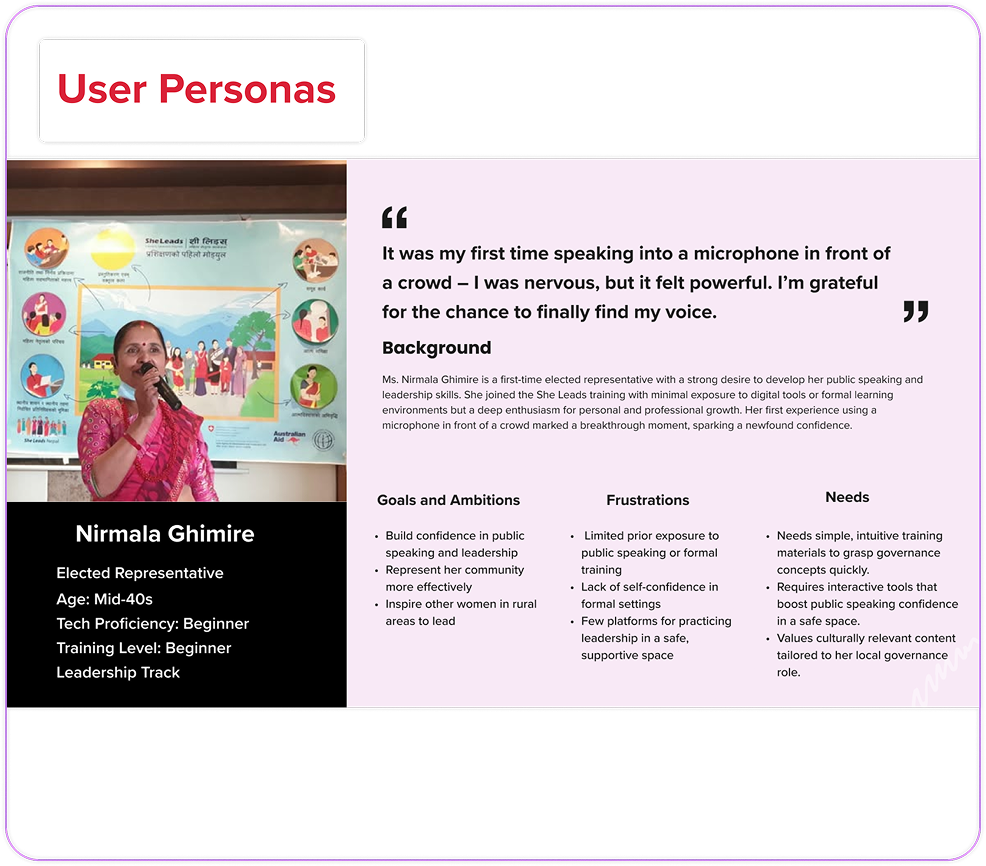
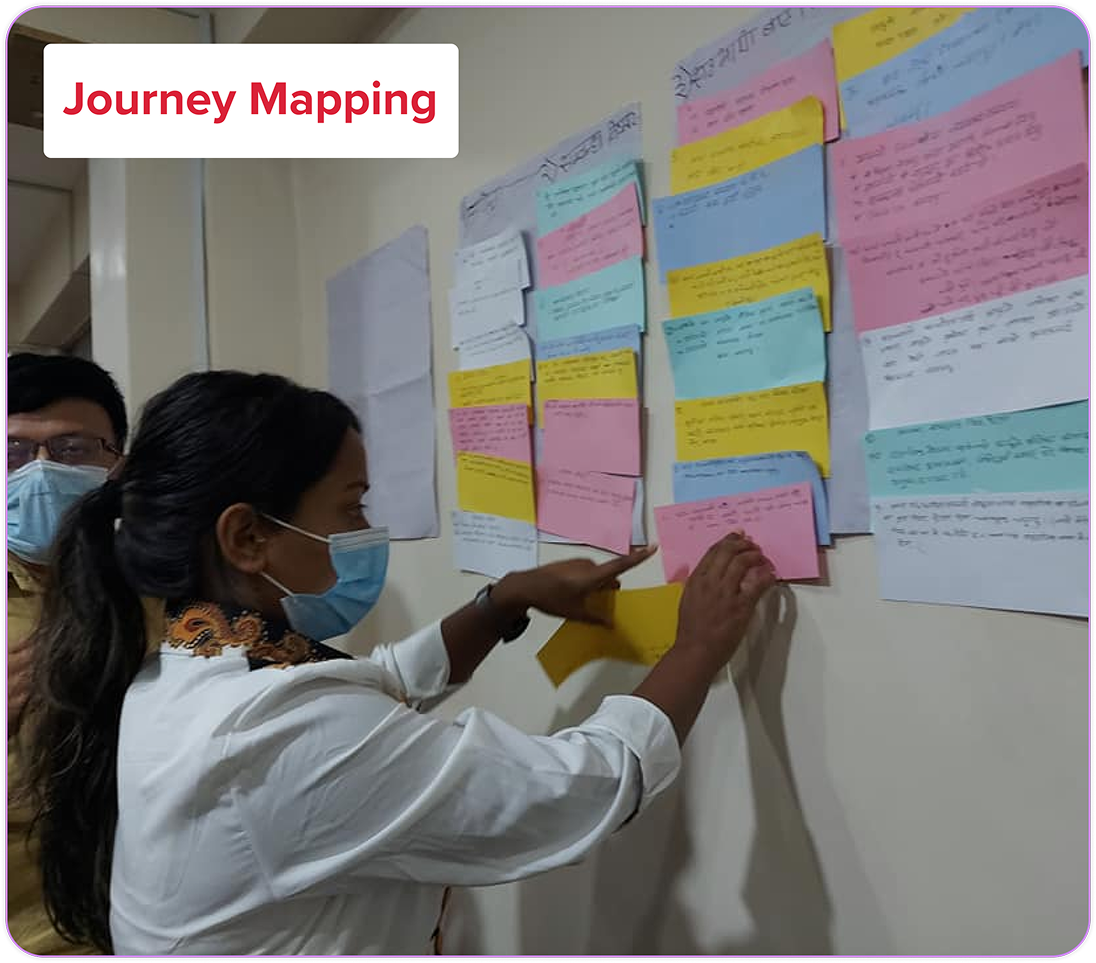
Ideation & Concept Development
In the ideation and concept development phase for She Leads Nepal, we brainstormed and explored various ideas to address the specific needs of women aspiring to leadership positions. By collaborating as a team, we generated multiple concepts and refined them based on user feedback and feasibility. This helped us identify the most impactful features and solutions, which we then developed into a clear concept for the platform, ensuring it aligned with both user needs and project goals.

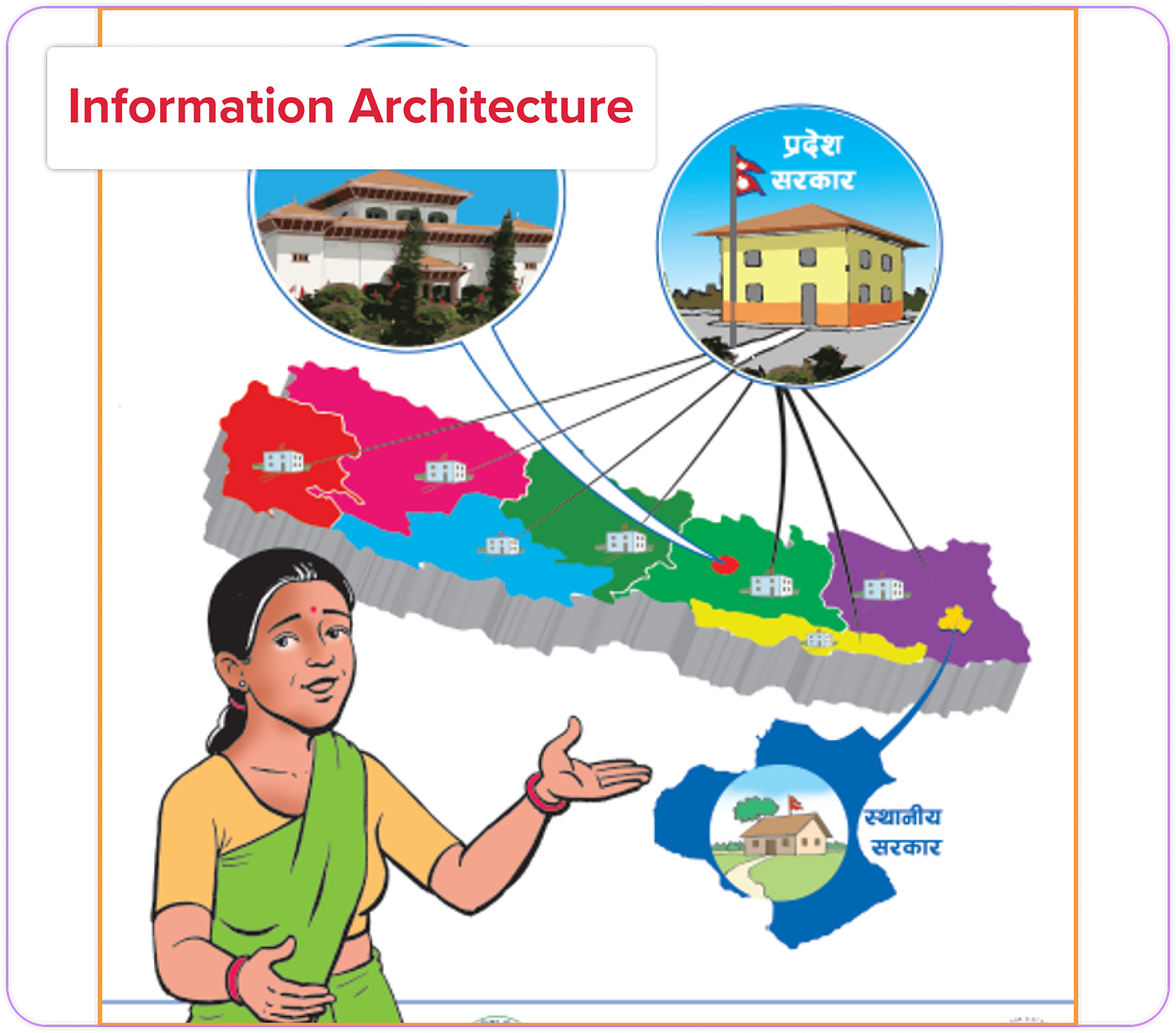
Illustrations
In designing the illustrations, we focused on representing a wide range of women leaders from diverse backgrounds, including different ages, ethnicities, and abilities. This was done to foster inclusivity and help participants see themselves reflected in the materials. The illustrations highlighted women in various leadership roles, showcasing their strength, resilience, and potential. By using diverse imagery, we ensured that the materials resonated with the participants and empowered them to step into their leadership roles with confidence.

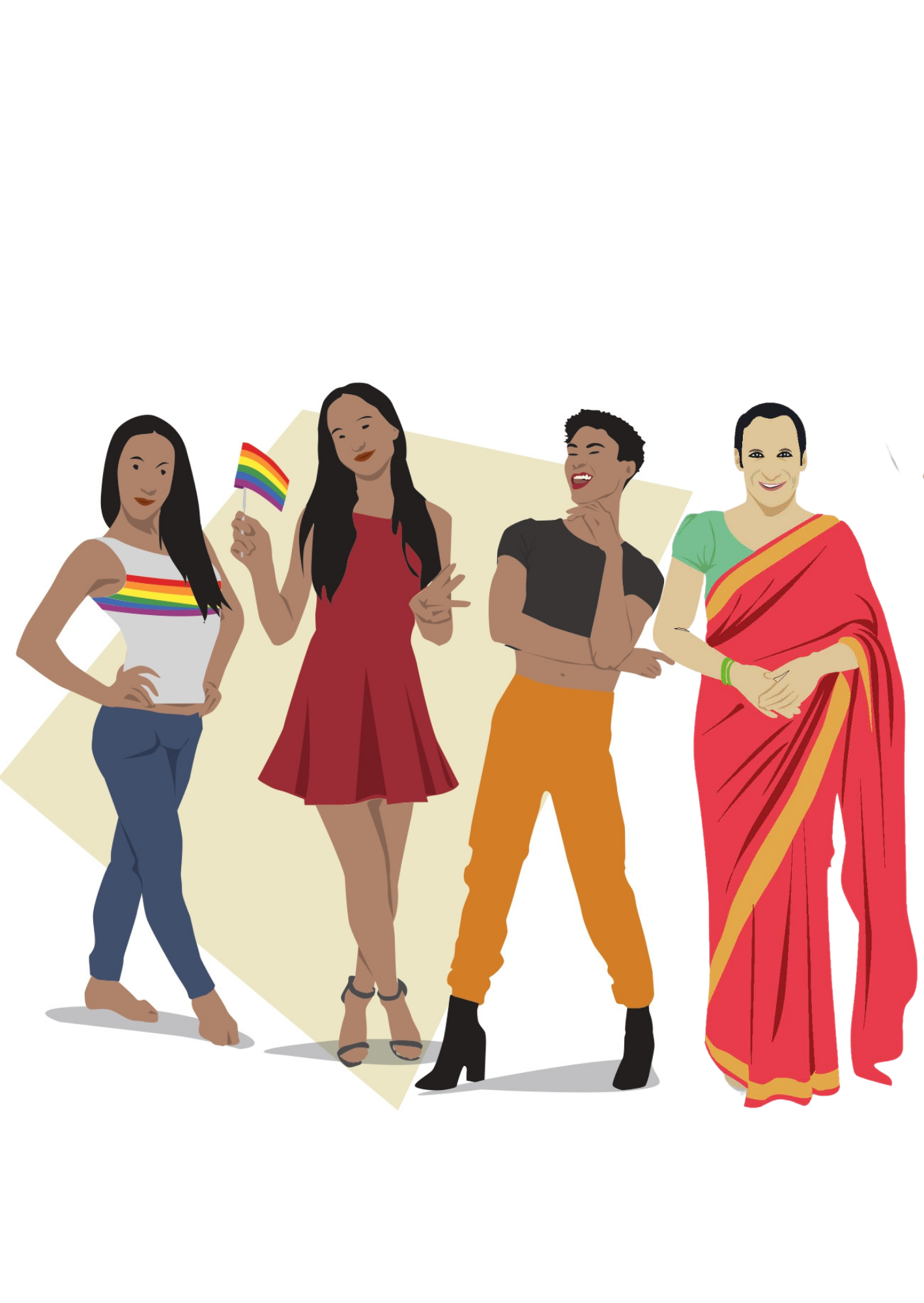


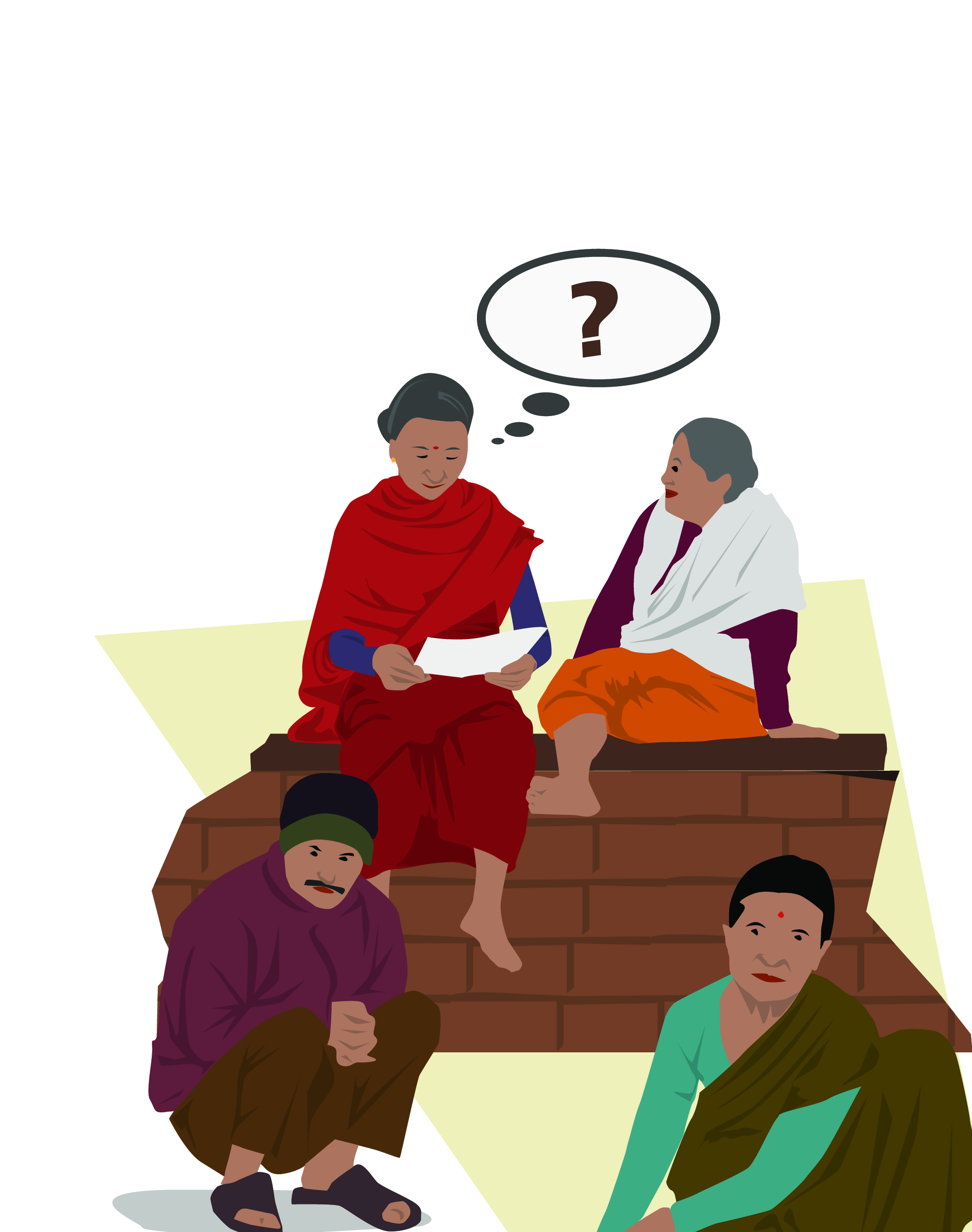
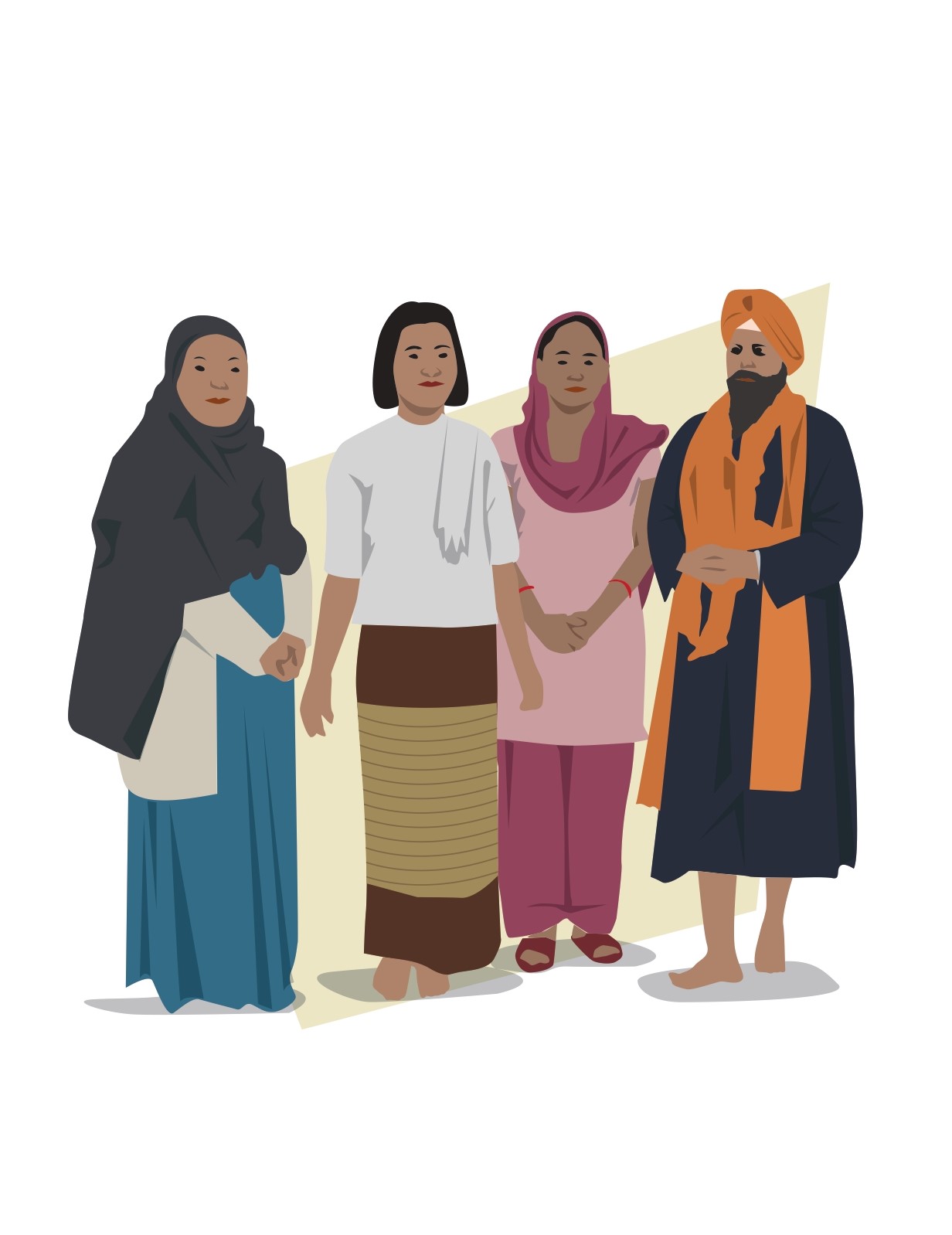
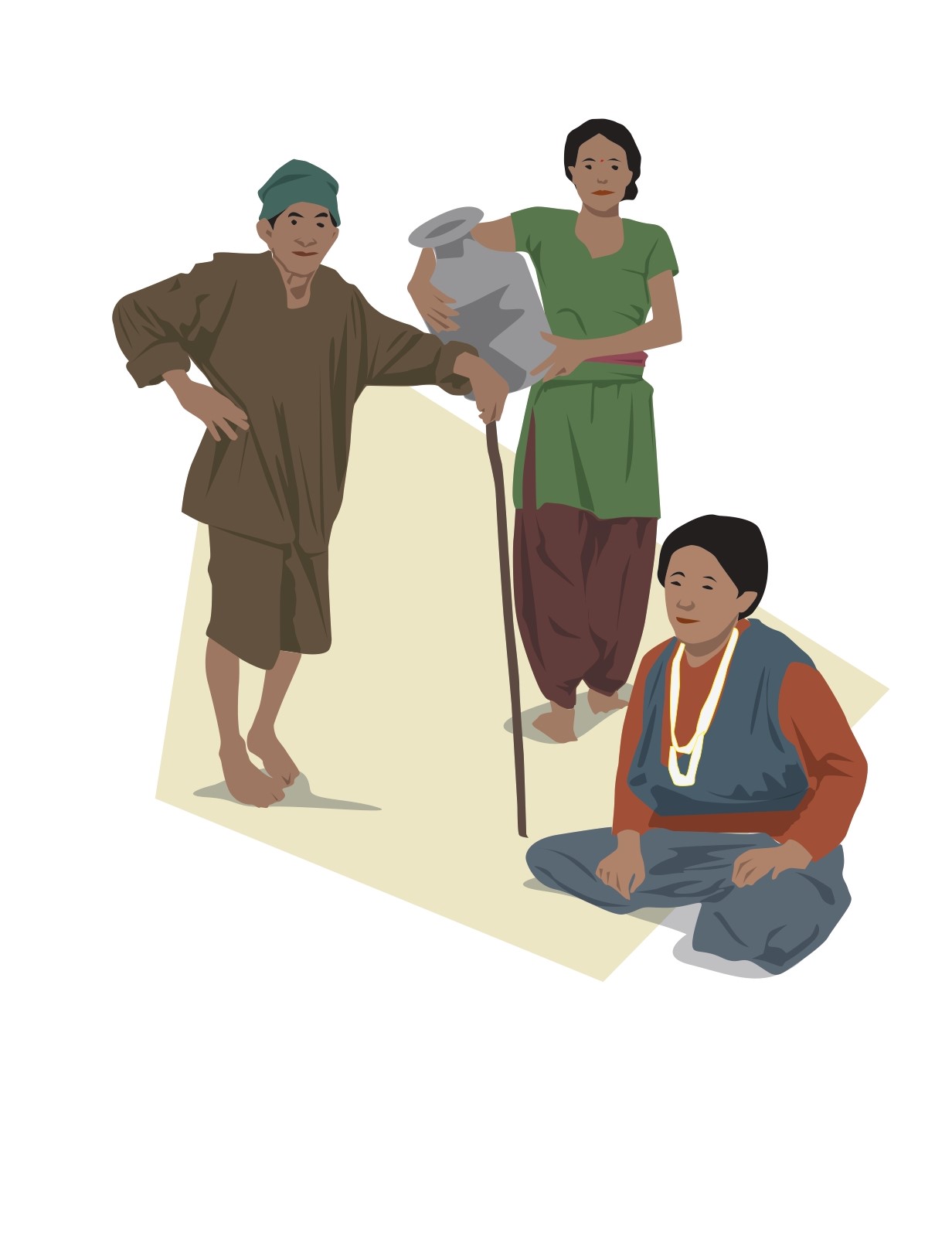
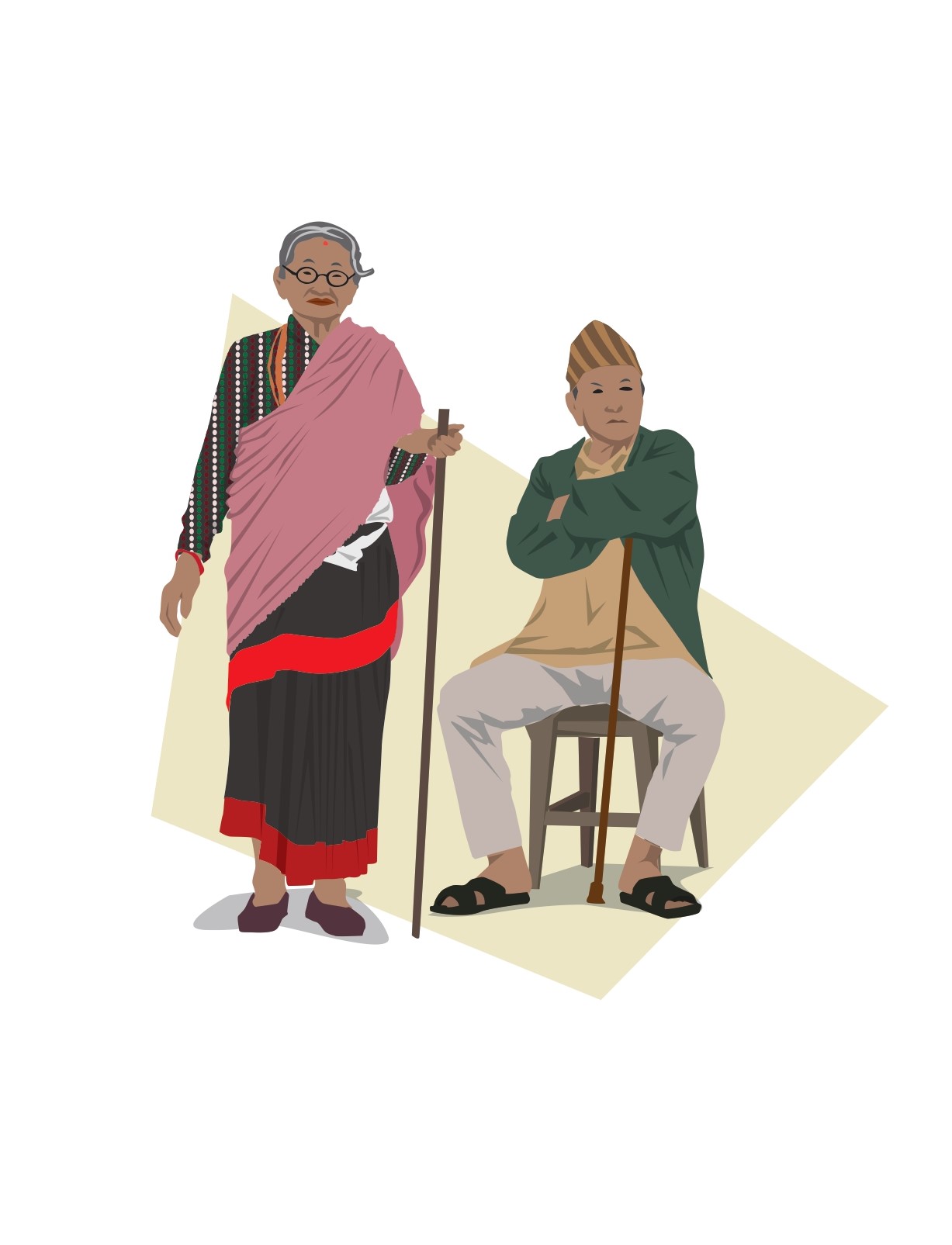
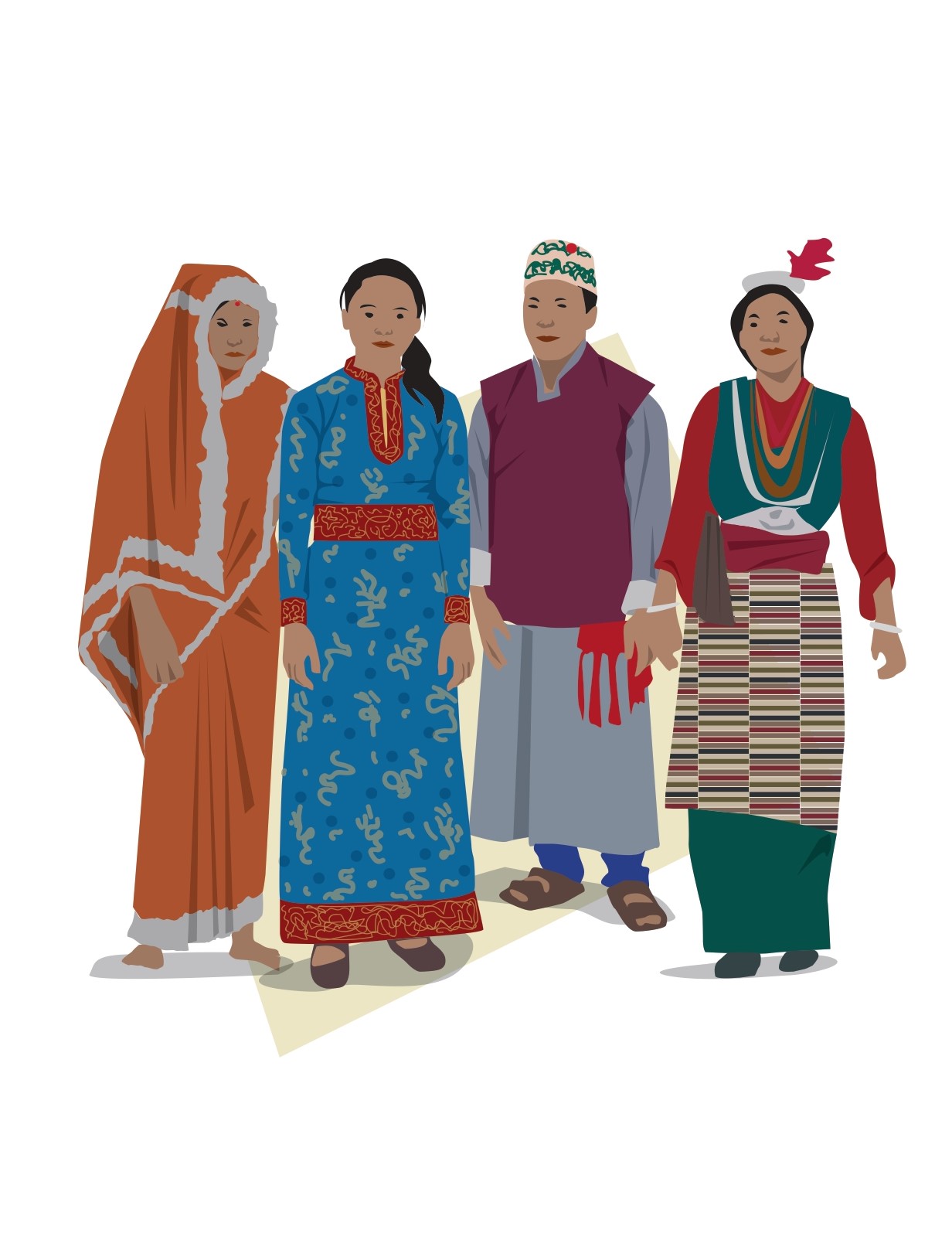
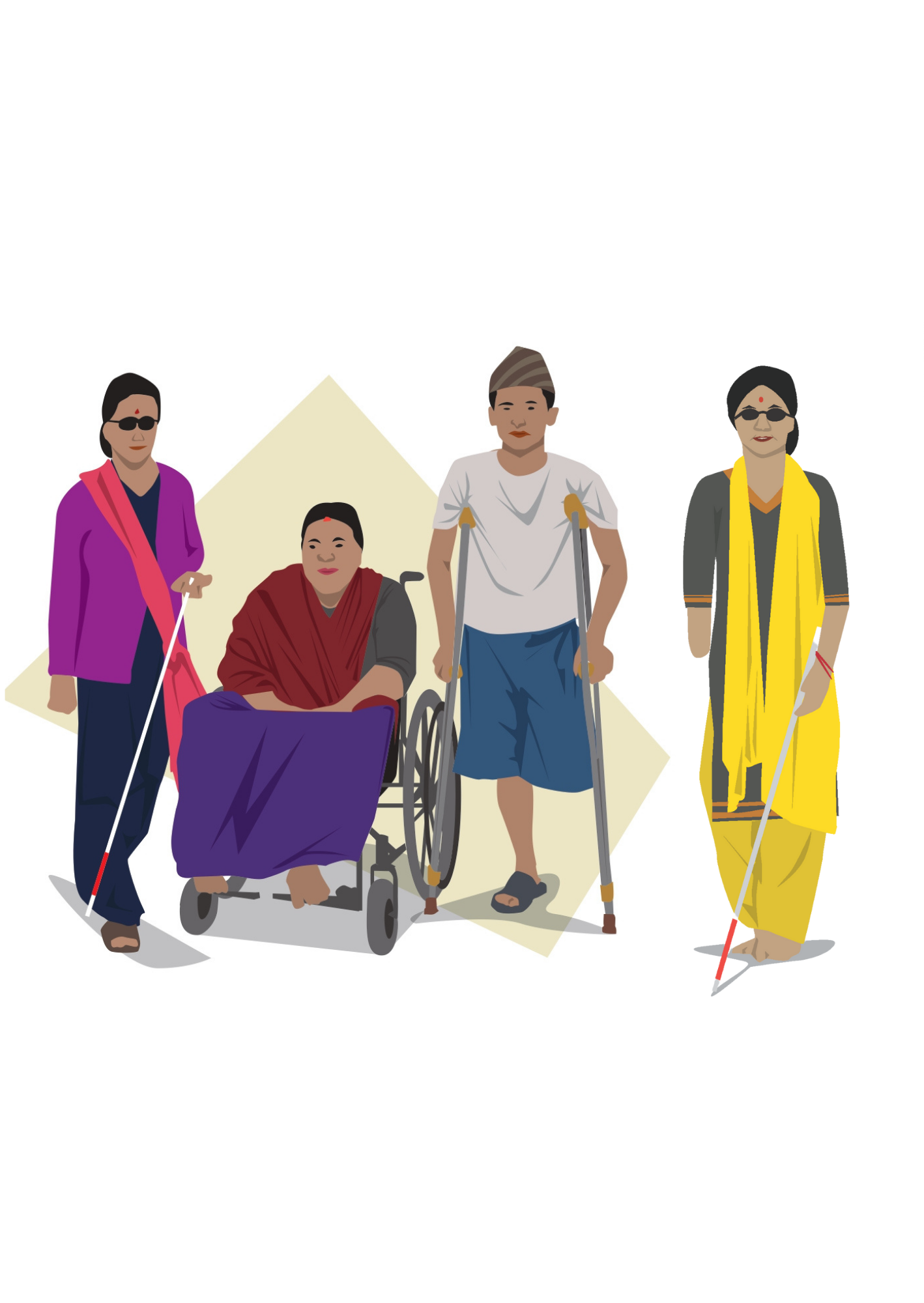
Visual Design & Storytelling
As part of the “She Leads” training program in Nepal, I designed a set of visual assets that helped bring the program’s goals and impact to life. These visuals were created to strengthen communication, highlight representation, and build emotional connection with participants and audiences.
The assets were used across:
- Training materials, where scenes depicted real-life challenges like navigating governance during COVID-19.
- Community assignments, helping representatives communicate with local citizens about safety and inclusion.
- Promotional and storytelling content, visually reinforcing the message that women from all backgrounds—Dalit, disabled, elderly, rural—belong in leadership.
Each image captures a specific moment or message. Through thoughtful composition, expressive body language, and inclusive representation, the illustrations helped bring the program’s core values to life.
“My goal was to create visuals that felt grounded, human, and representative something participants could see themselves in and feel proud of.”
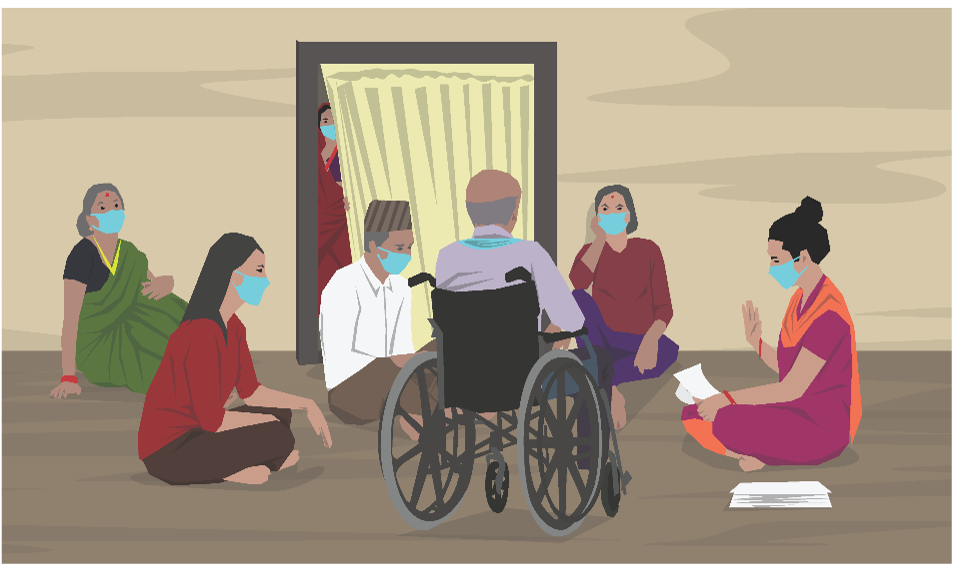
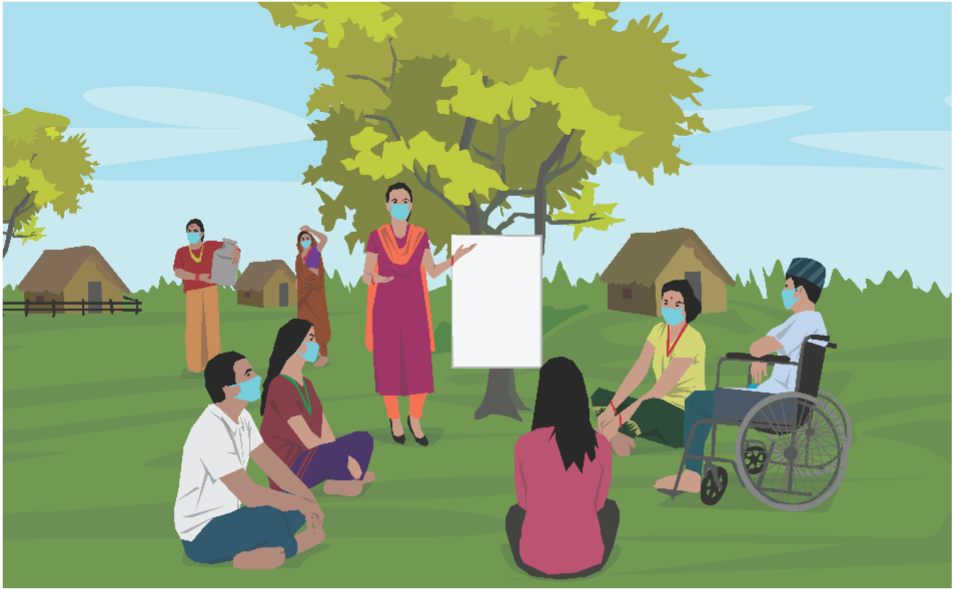
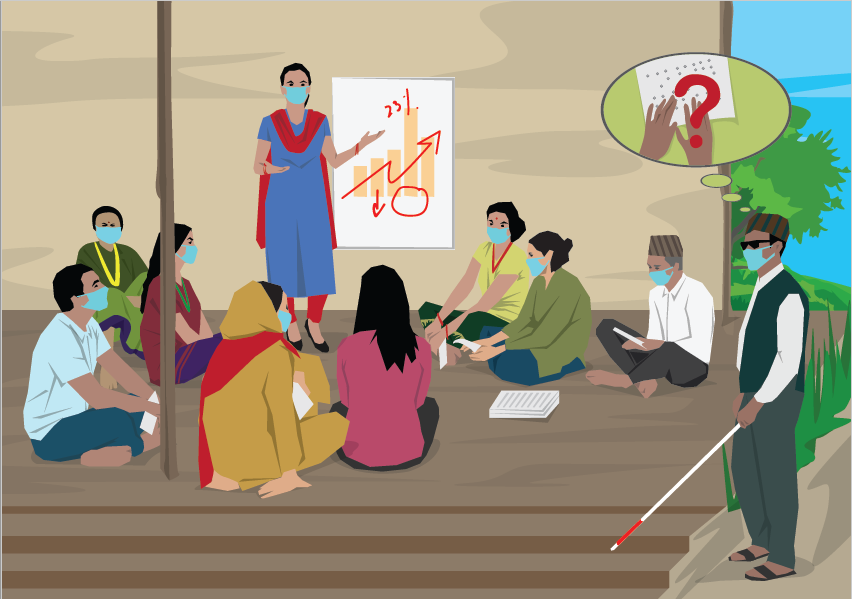
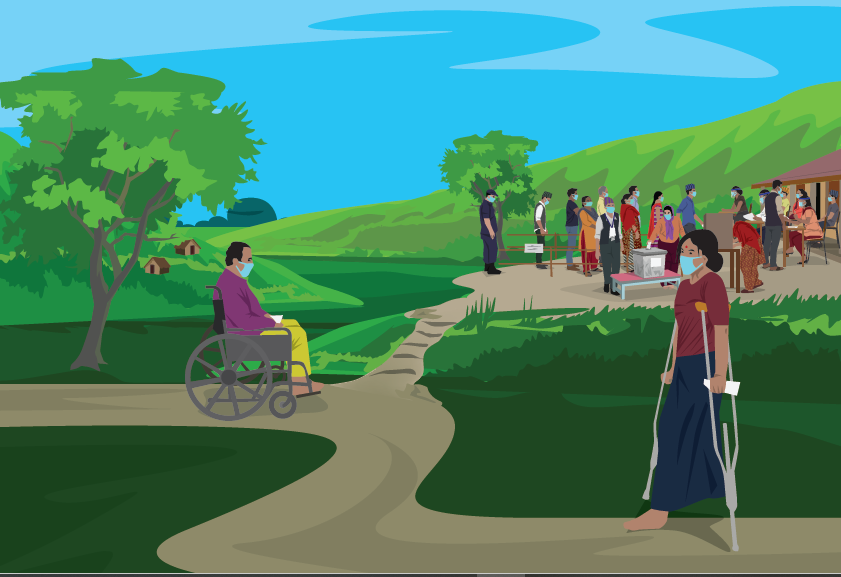
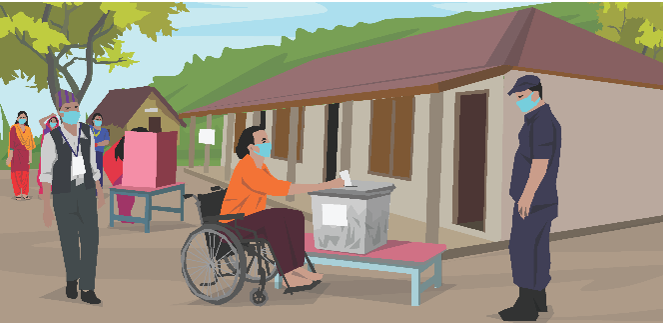
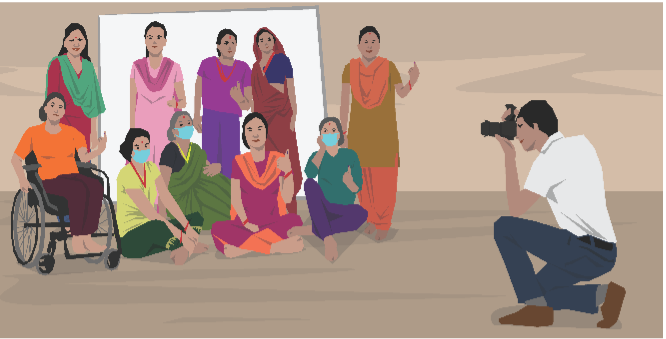
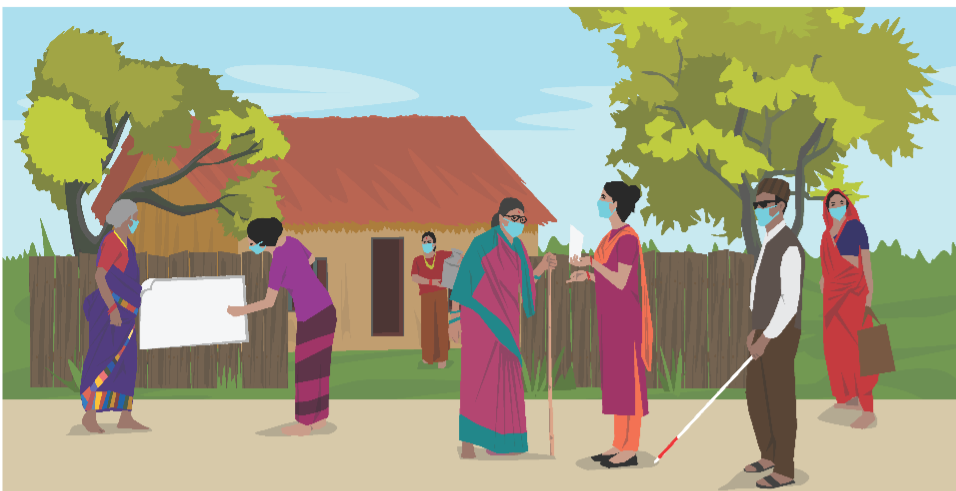







Results
- 472 elected women representatives completed the full first round of training with improved leadership, governance, and public speaking skills.
- Participants reported greater confidence in voicing opinions during municipal meetings and policy discussions.
- Local leaders and family members demonstrated growing support for women’s participation after community sensitization activities.
- The project set a national example for inclusive, gender-responsive local governance training programs.
Reflections
Contributing to She Leads Nepal was a deeply meaningful experience that strengthened my commitment to human-centered, inclusive design. It taught me the power of design not just as a tool for education, but as a catalyst for social transformation. I learned how to collaborate across international teams, design for marginalized communities, and ensure that accessibility, cultural sensitivity, and resilience are embedded into every touchpoint. I learned to design not just for screens, but for real-world learning experiences ensuring that accessibility, clarity, cultural empathy, and user empowerment stayed at the heart of every design decision.